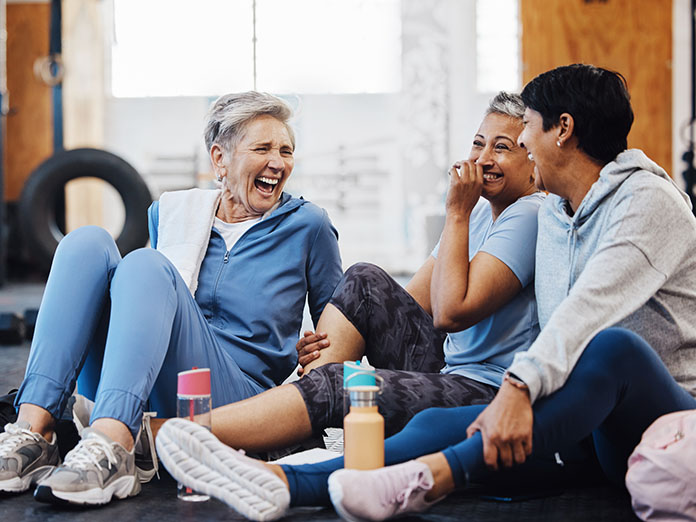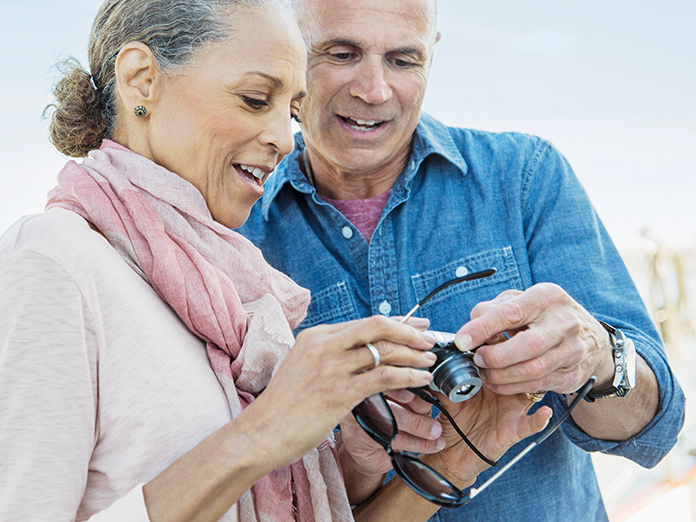Featured updates
Connect to care
Aetna Medicare Advantage plans take a total, connected approach to your health. Our main goal is to help you live your healthiest life possible, body and mind. We’re here for you, if you need help understanding your care, your plan benefits, or if you ever have questions.

Added benefits & wellness
Learn more about your plan’s benefits and how they can help you be the best possible you. And find information you need to help you get healthier and stay healthier, today, tomorrow and all your tomorrows.
Hear from our members
Find out why more than 190,000 State of New Jersey members chose Aetna Medicare Advantage.
Nancy Baton
Aetna Medicare Advantage Member
“Hi, my name is Nancy Baton. I am a retired New Jersey high school principal and middle school principal. And I am truly enjoying my retirement.
I live with my husband here in Westfield, New Jersey and I’ve been married to Bill, it’ll be 38 years this summer.
We have two children, grown children, and I have five grandsons. My friends are very important to me. I have one group of friends with whom I play mahjongg once a week on Fridays and another group that we play a variety of card games. Just enjoying each other’s company is what’s so important to me.
When it came time for me to enroll in Medicare, I wanted the one with the least amount of hassles and I had been told what a great health plan Aetna has. That’s why I chose Aetna and I’m very happy I did.
When I decided to go with the Aetna Medicare Advantage plan, I chose it because of the wide range of coverage and the low copays. And I found that I was not limited in my choice of doctors.
We use CVS pharmacy, it’s very convenient. They even have a drive-up window and what we like is that when our prescriptions are ready, they text us.
Every year Aetna offers the opportunity for a Healthy Home Visit. Once a year they send a nurse right here in my home and the nurse examines me and actually this year she found something. So she did a test on me and my doctor called me and said you need to see a vascular surgeon and I’m under his care. Now I never would have caught something that could be potentially very dangerous had that nurse not come to my home.
I love to walk. I recently had a spinal fusion so I’ve been unable to walk. But I’ve walked between two and five miles with a friend almost every day.
I’m recuperating now from the surgery and I had a great deal of support from Aetna because they supported what the doctor recommended and I am now in physical therapy twice a week.
And I’m really looking forward to getting rid of my back brace and just starting to walk again. Having the support of Aetna and not having to worry about bills or paperwork or is this covered, I didn’t have any of that. All I do now is concentrate on my recovery.
If you’re not healthy, you’re not going anywhere. So Aetna has helped me stay on track.”
{On screen}
This is a true member story and is not a paid endorsement.
{On screen}
Aetna Medicare Advantage Plan
To learn more, contact Aetna® Member Services, ${memberhours}.
SHBP (State and Local Government retirees) call: ${groupPhoneNumberSHBP} ${tty}
SEHBP (Education retirees) call: ${groupPhoneNumberSEHBP} ${tty}
SONJ.AetnaMedicare.com
{On screen}
See Evidence of Coverage for a complete description of plan benefits, exclusions, limitations and conditions of coverage. Plan features and availability may vary by service area.
©2022 Aetna Inc.
Y0001_GRP_4695_2022_C

Once you’re enrolled, here’s what’s next
When you enroll in an Aetna® Medicare plan, here's what you can expect. We'll mail you:
A letter saying you’re a member of our plan
Your Aetna member ID card
A new member Journey Handbook with helpful tools, cost-saving resources and important tips
Read your plan documents to learn more about your plan and how it works. The Evidence of Coverage will tell you exactly what's covered and your out-of-pocket costs.
